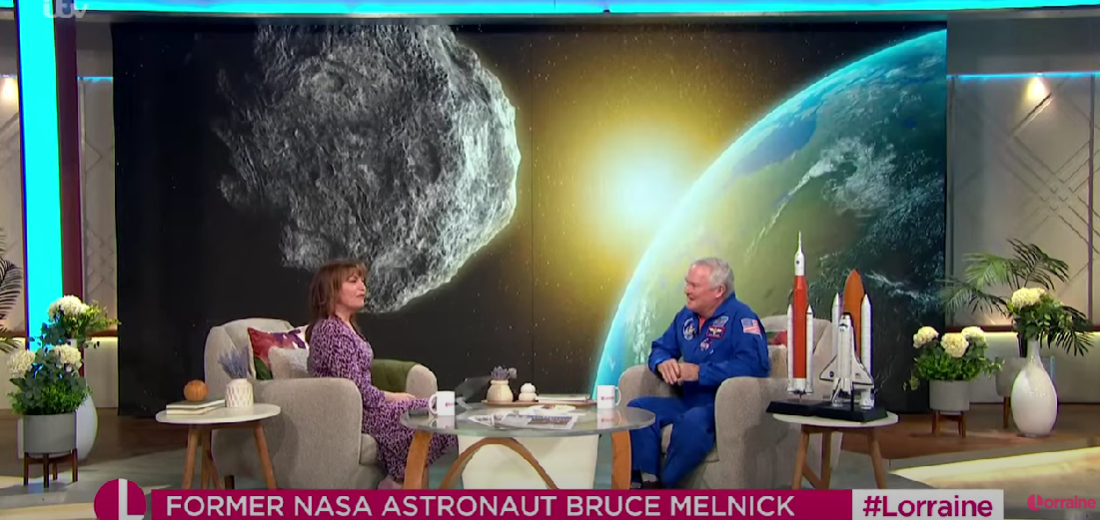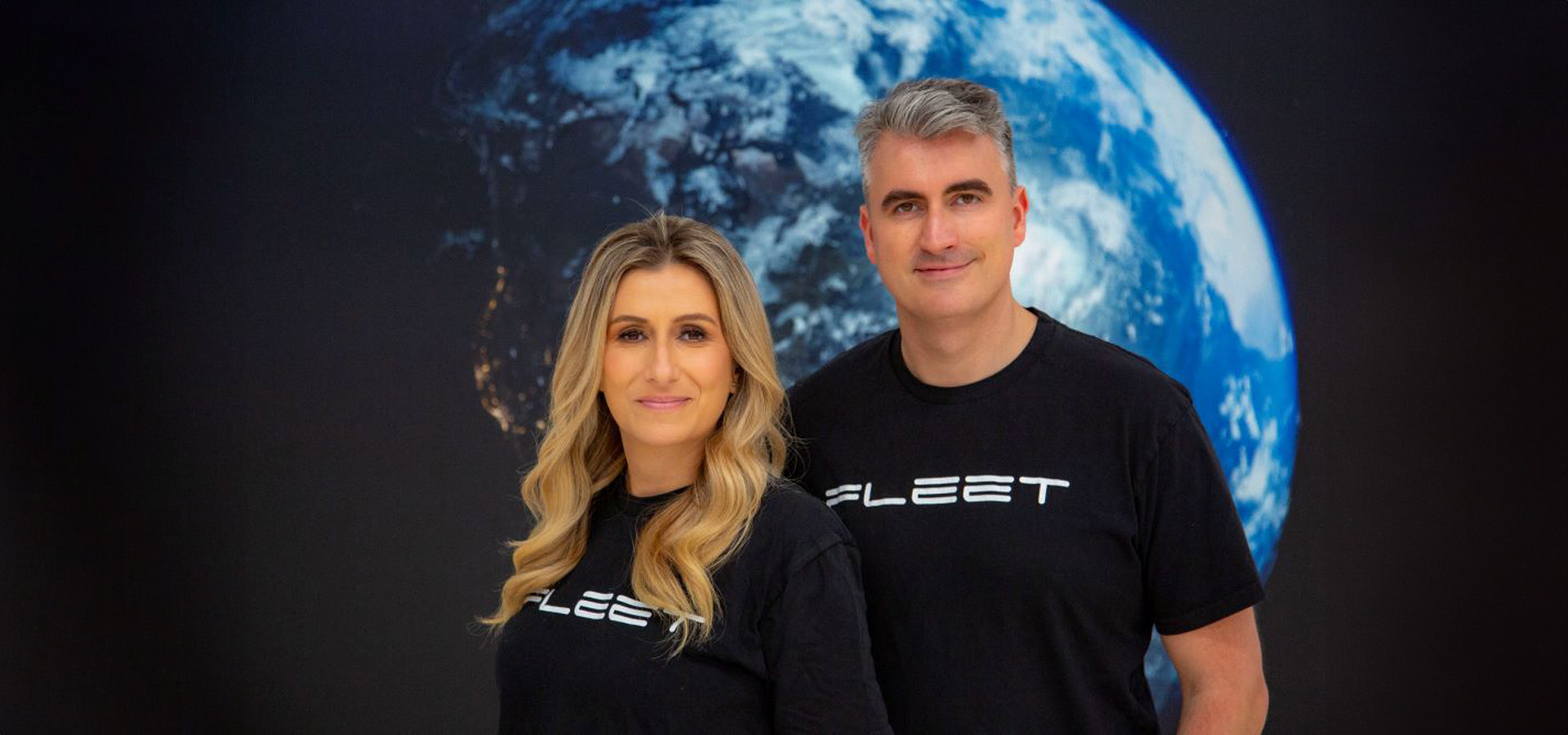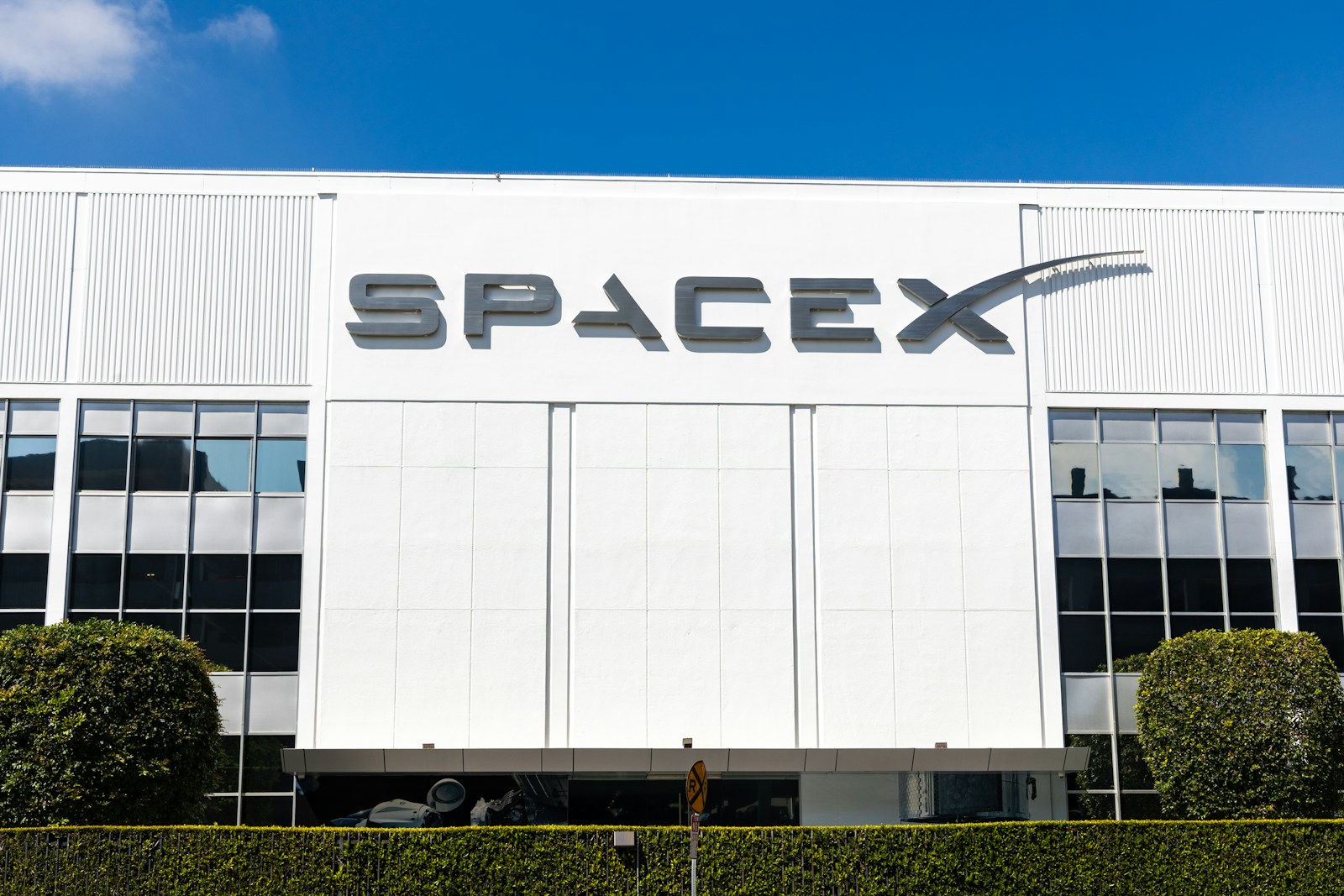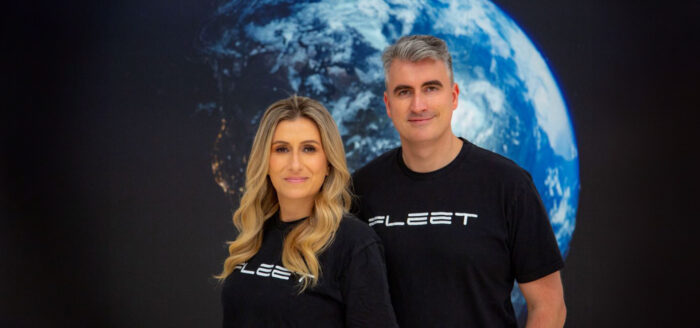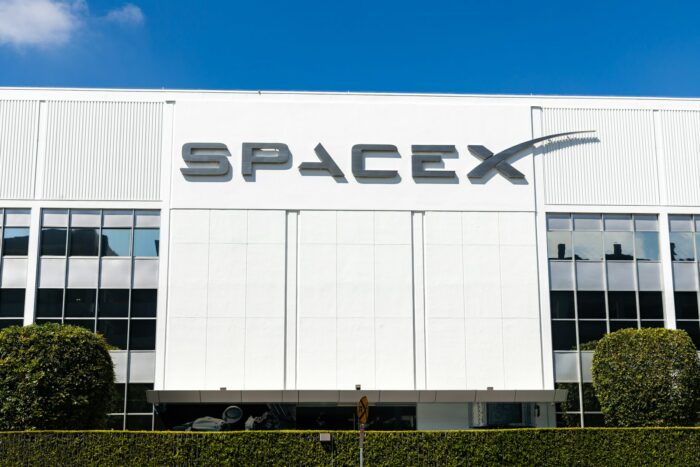After talking about the threat of an asteroid hitting our planet — the closest one has been to Earth in some 300 years — Lorraine Kelly, a British journalist and television presenter, got down to some serious questions for former NASA astronaut Bruce Melnick, the guest last week on her eponymous talk show, Lorraine.
Melnick, who spent more than 300 hours in space and now works as an ambassador from the Kennedy Space Center Visitor Complex, retired as an astronaut in 2008.
Making Mistakes in Space
“My first view of the Earth actually made me make a mistake on my first job I had in space,” said Melnick. “I was supposed to take a picture of the external tank right after I got off the space shuttle and I was so mesmerized looking at this beautiful planet for the first time that I forgot to take the pictures and my commander said Bruce, why aren’t you taking pictures? And I said, What? Oh, the tank.”
Never Give Up
To become an astronaut, Melnick had tenacity and stubbornness. He started applying in 1977 when NASA was first looking for astronauts to fly aboard the space shuttle while they were still building it.
“I applied for 10 years,” said Melnick. “I applied six times to the Astronaut Corps before they finally accepted me in 1987.”
This brings new meaning to the saying if at first you don’t succeed…
Now an ambassador for the Kennedy Space Center Visitor Complex, Melnick said that it’s the best job a former astronaut or veteran astronaut can have because you get to still live it and reminisce about it.
Inspiration for the Next Generation
“I get to see my colleagues every day at the Visitor Complex. We have an astronaut there every day for the people to meet and talk to and I mean, it’s just wonderful. It’s a great ‘edutainment’ place to go,” said Melnick, with Kelly highlighting the fact that it must be fantastic for him especially when the young boys and girls — possibly potential astronauts in the future — visit the center and are so enthused.
Melnick then talked about his own experience as a child wanting to become an astronaut.
Space Dreams
“I was eleven years old and in the sixth grade when Alan Shepard first flew. And that’s when I first thought wow, what a great thing that would be to be an astronaut. And so he was my inspiration,” said Melnick, adding that when young people come to the Visitor Complex they get to see an astronaut, talk to them, get to see rockets and shuttles that have actually flown in space, including Atlantis, that went into space 33 times.
Kelly then reminisced about her own “brief” experience as an “astronaut”.
“I was lucky enough to go there myself and be sort of put through astronaut training. It was an amazing experience. And again, you know, I just felt like all that I did with the zero-gravity thing, but I know that’s nothing to you, but I did that zero-gravity flight. And I can honestly tell you, Bruce, I was like a child, like a toddler I was so excited,” said Kelly.
“It’s fun but you only get to do it for like 20 seconds,” Melnick answered, adding that they got to do it for days, weeks and months at a time.
The topic then moved to Artemis.
“So, we already flew Artemis once, that was the first test flight,” said Melnick. “Next year we’re going to fly Artemis with people on board and after they circle the Earth a few times, they’re going to do a lap around the moon. And then the year after that we’re going to land on the moon again. It’s going to be awesome.”
Kelly was obviously impressed, stating that she was so happy she will be alive to witness that event.
To Mars
“You know, I think it could be within the next 20 or 30 years. I don’t think it’s that far off,” said Melnick, answering the host’s question as to how long until we might actually get a person on Mars. “Once we establish that lunar base and once we establish the gateway around the moon where we can bring a rocket and refuel it, you know, that’s the hard part, leaving Earth’s gravity. But if we can launch or operate from the moon, where there’s a lot less, one-sixth of the gravity, it’s a lot easier to get to Mars from there.”
Kelly made a good point to Melnick, stressing that some people may just not get why we should go to Mars, and why we are spending all this money when we have enough problems on our own planet that need addressing.
“We’ve always been explorers, you know, where do we come from?” said Melnick. “Where are we going? Why are we here? I mean, we didn’t just stay on this continent. You know, we went across the Atlantic Ocean and discovered America. We are explorers, and that’s in our heart… Oh, and by the way, what we find out and the technology it takes to do these things is better for every human being on the planet.”
Little Green Men
The host then asked the retired NASA astronaut if we are alone in the universe, bringing up the eternal question of the Fermi paradox.
“I think that it’s impossible that it’s not,” Melnick began. “You look at every star from Earth, and every one of those stars probably has a planet around it. And then you see what the Hubble Space Telescope has shown us with all the different galaxies that are out there. And then now we have the James Webb telescope that’s gone beyond that and the trillions and trillions of galaxies out there with the trillions and trillions of stars around in each galaxy. And they all have planets on them. To think that we are the only planet, this little blue marble, that has living beings on it is pretty far-fetched. I don’t think it can happen. They’re out there.”
Featured image: Credit Lorraine, ITV Studios
If you found this article to be informative, you can explore more current space news, exclusives, interviews and podcasts here.
Share this article:

